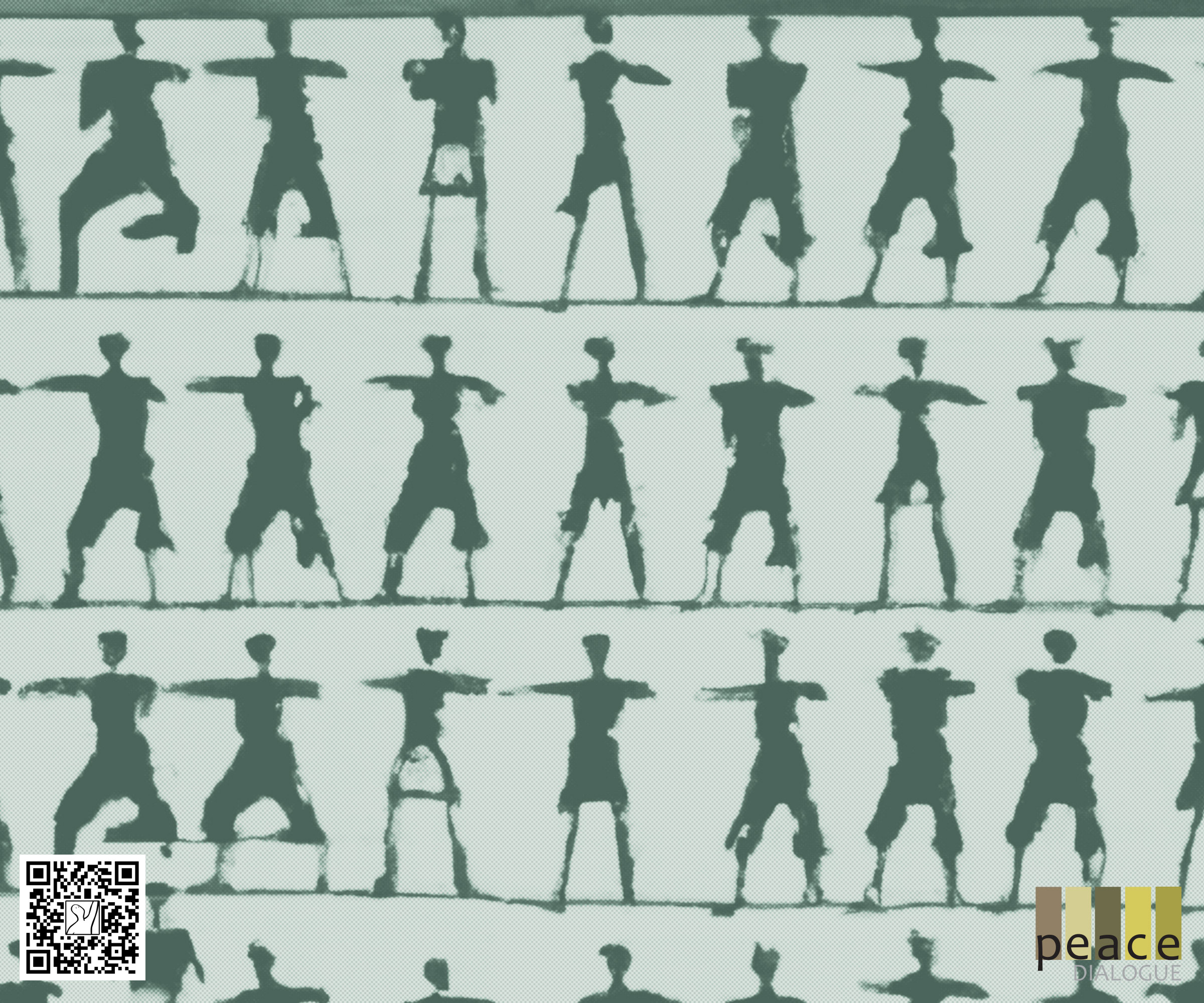
© 2023. ILLUSTRATION BY PEACE DIALOGUE NGO
The report is written by Ani Harutyunyan.
Editor – Vahagn Antonyan
Introduction and Study Rationale
Peace Dialogue NGO’s study was designed to critically assess human rights norms and conscripts’ perceptions of military service in Armenia during the summer conscription of 2023. The initiative aimed to bridge the policy-practice gap in the realm of military service and human rights.
Methodology
The study encompassed a broad spectrum of the Armenian conscript population, engaging 361 participants aged 18-23 from various regions. The methodology involved targeted, non-random sampling to ensure a diverse representation of viewpoints.
Participant Demographics
Primarily consisting of 18-year-olds (306 out of 361, 84.8%), the study offers insights into the experiences of those newly entering the military service.
Survey Rationale and Main Findings
Medical Examination
- 84% (302 conscripts) reported comprehensive examinations, while 16% (57 conscripts) described theirs as cursory. This reflects varied experiences in the medical examination process.
A conscript’s statement, “In most cases, no one listens when you say you have problems…,” highlights a gap in empathetic medical care.
1. Have you undergone medical examination? Was it a thorough of superficial examination?

Awareness of Military Service
- 58% (209 conscripts) found PMT classes beneficial, whereas 36% (131 conscripts) saw little value, indicating a disparity in the perceived effectiveness of these classes.
- A significant 39% (140 conscripts) had not watched any military service videos, suggesting varied engagement levels with military-related media.
2. Did you take “Preliminary Military Training” classes in school? Did you like the subject? What have you learnt?

3. Did you view any videos related to military service on television or the Internet, and if you did, what details do you recall?

Human Rights Awareness in Armed Forces
- 67% (241 conscripts) did not notice human rights posters, pointing to a communication gap.
- Uncertainty about rights during military service was significant, with 37% (134 conscripts) unsure but assuming fewer rights than in civilian life.
4. Are you aware of the human rights you are entitled to during your military service? Do these rights align with the ones you currently possess before being conscripted?

Handling of Abuse and Mistreatment
- Responsibility for safety was seen as a shared duty by 51% (183 conscripts) and as a personal one by 37% (132 conscripts).
- A majority, 82% (296 conscripts), opposed the idea of commanders physically disciplining soldiers, reflecting a clear stance against physical abuse.
- Responses to mistreatment varied, with some conscripts indicating confrontation, while others were uncertain of the appropriate response.
5. Who is responsible for the protection of your life and health during military service?

6. Does the commander have the authority to physically discipline the soldier?

Response to Illness and Coercion
- In the event of illness, 71% (255 conscripts) would seek medical help from the unit doctor, showing trust in military healthcare.
- Faced with coercion, 58% (211 conscripts) would refuse to take on others’ responsibilities, underlining a strong sense of individual rights.
7. What will you do if you fall sick in the military unit (fever, stomach ache, cough or other symptoms, etc.)?


The study was funded by the Black Sea Trust, a regional cooperation project under the German Marshall Fund.



